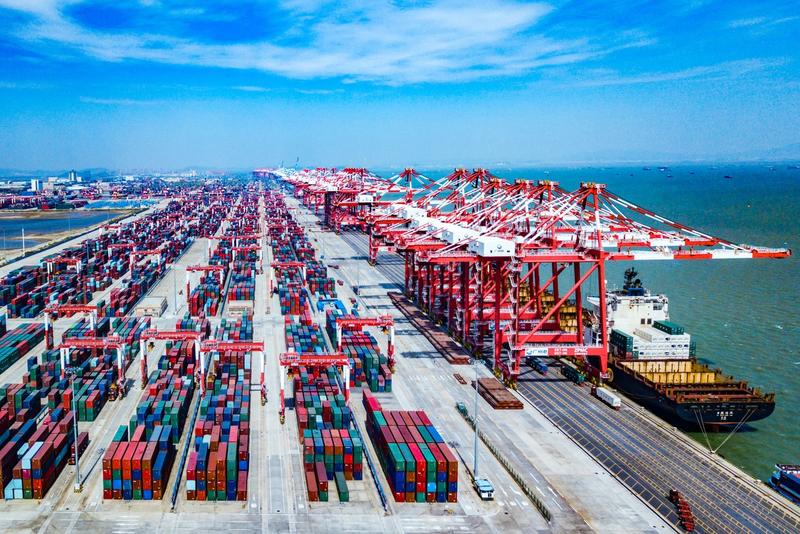
Photo shows a view of Nansha Port in Guangzhou, South China's Guangdong province. [Photo/China Daily]
This is an editorial from China Daily.
While responding to a volley of questions from CNN anchor and business editor-at-large Richard Quest at a development conference Bangladesh held in Dhaka on Saturday, Bangladeshi Foreign Minister A.K. Abdul Momen pointed out that China is a friendly country and a development partner of Bangladesh.
"We're in a pretty good state. So, there is no worry" about a debt trap, he said, adding that Bangladesh is also receiving support from Japan and there is no talk about that.
This is not the first time that the "Chinese debt trap" peddlers have received a square denial from the presumed "victims". Despite this, the "Chinese debt trap" claim, an anti-China discourse trap set by some China-bashers in Washington, continues to be peddled as part of the US' attempts to smear China.
To that end, it was also made a topic at the G20 Finance Ministers and Central Bank Governors Meeting in Bengaluru, India, on Feb 24-25. It is ridiculous that the major financial and economic leaders of the world wasted their valuable face-to-face communication opportunities on such an obvious anti-China stratagem.
Usually the debt trap claim is made in relation to African countries. But according to the World Bank, by the end of 2020, the total debt stock of sub-Saharan African countries exceeded $700 billion. Among them, private creditors, multilateral official debts and bilateral official debts account for 47 percent, 26 percent and 16 percent of long-term debts respectively, and Western private creditors and multilateral agencies account for the majority of African debts.
In order to pursue high returns, some Western countries, with the US as a representative, take advantage of their lenient financing conditions to induce developing countries to issue a large number of high-interest bonds, promoting the rapid growth of the total debt of these countries, and then use tight monetary policies and financial speculation and other means to "fleece" these poor countries, resulting in a serious debt crisis for the latter.
For instance, in the wake of the COVID-19 pandemic, the US Federal Reserve has continued to raise interest rates aggressively, exporting inflation and shifting the crisis on the basis of the hegemony of the US dollar, resulting in currency depreciations, capital outflows and further aggravation of the debt burden of some developing countries.
China on the contrary always follows the principle of debt sustainability and provides loans for project construction in light of the actual conditions of the recipient countries.
China has also taken the initiative to "reduce the burden" of debtor countries and ease their debt difficulties. According to a World Bank study, China restructured low-income country debt 71 times between 2008 and 2021. In 2020, China actively responded to the G20 debt moratorium initiative. That year alone, China's debt moratorium exceeded $1.3 billion, accounting for nearly 30 percent of the G20 total debt moratorium, making it the largest contributor among the G20 countries. China has also signed debt mitigation agreements or reached consensuses with 19 African countries.
Those Westerners peddling the "Chinese debt trap" fallacy are doing nothing but calling black white to cover up their own countries' real role as the layers and beneficiaries of debt traps.

 中文
中文



